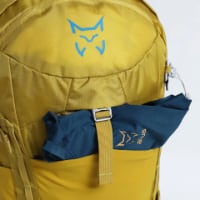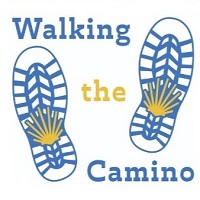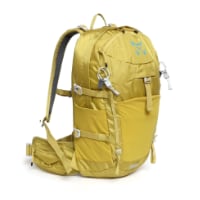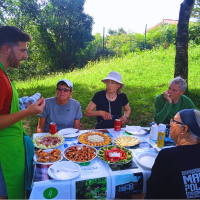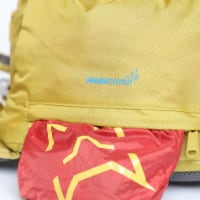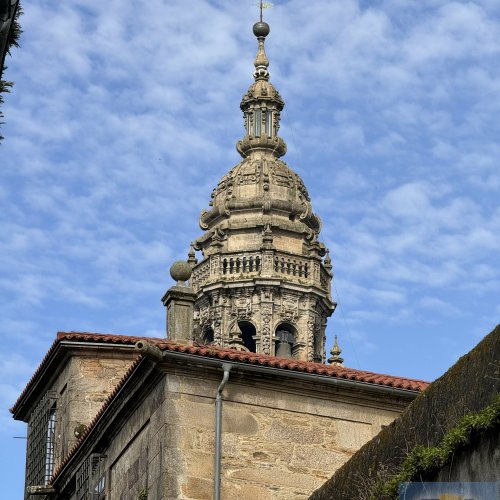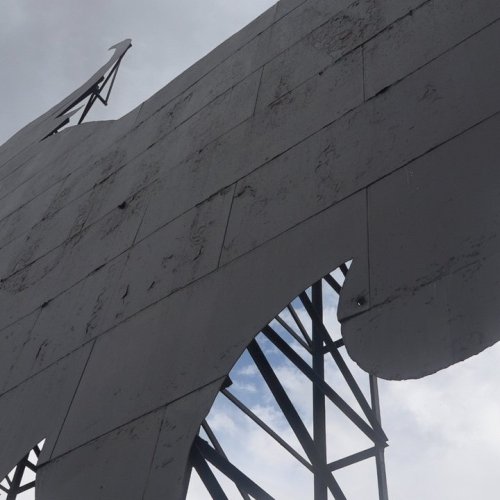Talking about mental toughness, we had a couple cruddy days on the Camino that required some mental toughness.
We got up early one morning to be at the Iron Cross at sunrise. We were walking in June, so sunrise is early. Because of this, we skipped breakfast. And, due to an oversight on our part, we didn't have any more snacks in our packs. And as it happened, there aren't any towns for quite a while. Bad planning on our part. It was a rather challenging leg - so plenty of hiking up hill + no food = bad combo. We also had blisters, so our feet weren't very happy. It was just shaping up to be a cruddy day.
At a peak of the mountain, we stopped for a break. When we picked up our packs to continue after our break, we realized that a metal rivet on my husband's pack snapped so that his pack strap was no longer attached - we were on top of a mountain, many km from the nearest town, no civilization in sight, and we have a broken pack. When you are tired and hungry, everything is frustrating beyond belief and problem-solving capabilities are diminished. Throwing the pack off the top of the mountain seemed as good a solution as any at that point. After some time spent growling, swearing under our breath, and wondering why we came on this stupid Camino anyway, we found some stuff in our packs to fix the broken strap, so that was fine.
Still grumpy and hungry though, we made our way down the mountain on the other side. This is a steep decent and requires some concentration. I looked up to enjoy the view, took a wrong step, slipped, and slid several yards down the trail on my bum. Really? F, F, F, F, F. I tore my pants, skinned my elbow, and twisted my ankle. Argh. At that point, I felt like curling up in a ball by the side of the trail, but we continued on - what else is there to do?
We made our way down to the next town and at least got some lunch. We felt better after the food (and cafe con leche) but were still just grumpy. After lunch, we soldiered on. We walked through some beautiful places, but we didn't care. We were just 100% done with that day. It was 1 foot in front of the other, just keep walking. So we walked and walked and walked. Finally that day was over.
The next day, I woke up bruised and sore from my trip down the hill on my bum. My ankle wasn't great either. We started walking and every step just hurt. Fortunately the day's walk was mostly flat. I made a go of it, but at lunch we decided that we would take a taxi to the next town where we wanted to stay - we thought about stopping where we were, but we knew that a town about 10km away was really nice and if we were going to have to recuperate somewhere, we wanted a nice place. We made a hotel reservation in that town and called a taxi to take us there. We rested up in that town and tended to various injuries.
The next day, we continued on, almost as brand new people. That day was absolutely fabulous. I don't know what happened to our string of bad luck, but it was done. We pressed though it and came out the other side.



